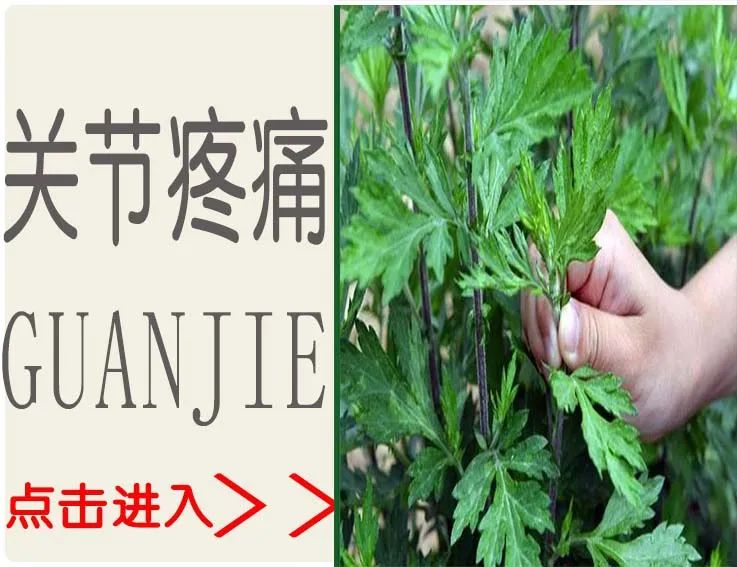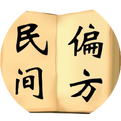————————————————————————————————————————————————————————————————–
(1) Ren Shen (Ginseng). Since ancient times, ginseng has been regarded as a precious tonic. Many elderly, weak, and emaciated patients, who have suffered from prolonged illnesses, can often be revived from the brink of death with a cup of ginseng soup. Thus, the ancients claimed it has the power to support the weak and save the dying, earning it names like “Earth’s Essence,” “Divine Herb,” and “Longevity Herb.”
Currently, modern science has revealed the secrets of ginseng’s miraculous effects of “reviving the dead,” “anti-aging,” and “nourishing the mind and spirit,” which are attributed to its main active components, ginsenosides and ginseng polysaccharides. Ginsenosides enhance mental and physical labor capacity, combat fatigue, improve cognitive efficiency, protect the heart, enhance myocardial metabolism, lower blood sugar, and delay aging. Ginseng polysaccharides boost immune function, enhance the body’s defense against harmful stimuli, and exhibit anti-tumor properties.
Ren Shen belongs to the Araliaceae family, has a sweet and slightly bitter taste, and is warm in nature. It is known for its ability to greatly replenish vital energy (yuan qi), generate fluids, quench thirst, invigorate the body, and promote longevity. However, depending on the processing method, it can be categorized into red ginseng, fresh sun-dried ginseng, sugar ginseng, and ginseng tails. While all have qi-boosting effects, each has its unique characteristics.
Fresh sun-dried ginseng: has a milder nature, neither warming nor drying, suitable for strengthening the body and enhancing disease resistance.
Red ginseng: has a warming and invigorating nature, suitable for emergency revival of yang energy.
Sugar ginseng: has the mildest nature and relatively weaker effects, suitable for strengthening the spleen and benefiting the lungs.
Ginseng tails: commonly derived from red ginseng, similar in properties to red ginseng but with milder effects.
Wild mountain ginseng: has no warming or drying properties, greatly replenishes vital energy, and is considered the finest among ginseng, but is rare and expensive, thus seldom used.
Ginseng can be used in various ways: it can be stewed, requiring gentle heat (low heat) for over an hour to extract its effective components, with a typical dosage of 3-9 grams; it can be swallowed or chewed, where dried ginseng is ground into a fine powder, with a dosage of about 10 grams per use, which conserves the herb while ensuring efficacy; it can also be soaked in wine, where ginseng or other herbs are chopped and placed in good rice wine for about a month before consumption, typically two to three tablespoons twice a day. For brewing wine, ginseng can be used as an ingredient along with rice and other materials, consumed in similar dosages.
Due to its high value, ginseng should be stored carefully to prevent mold, insect damage, and spoilage. It is best kept in a cool, dry place or in a container with lime, sealed tightly.
(2) Dang Shen (Codonopsis). The root of the Codonopsis plant is used medicinally, with a sweet and neutral flavor, functioning to tonify the middle and boost qi, nourish blood, and generate fluids. It is a commonly used tonic for health maintenance, though it is milder than ginseng and is often used as a substitute for ginseng in treating qi deficiency. Modern studies show that it has a strengthening effect, enhances body resistance, increases red blood cells, and decreases white blood cells; it can also dilate peripheral blood vessels, lower blood pressure, and inhibit the pressor effect of the adrenal glands.
The typical dosage is 3 to 9 grams, and in severe or acute conditions, it can be increased to 15 to 30 grams or more.
(3) Huang Qi (Astragalus). The root is used medicinally and is an important qi-boosting herb that benefits the entire body’s qi. Classified as a superior herb in the “Shennong Bencao Jing,” it is derived from the roots of leguminous plants like Astragalus membranaceus. It has a sweet taste and a slightly warm nature, assisting the defensive qi, consolidating the exterior, tonifying the middle qi, elevating clear qi, expelling toxins, and promoting urination, making it an excellent tonic for health maintenance. Modern research and clinical applications indicate that this herb indeed has multiple strengthening effects, such as cardiotonic properties, liver protection, and stimulation of the central nervous system. High doses (30-60 grams) of Huang Qi can lower blood pressure, promote diuresis, increase plasma proteins, and reduce urinary proteins, making it effective for hypertension and kidney diseases associated with weakened yang qi. When paired with Dang Gui (Angelica), it significantly accelerates the electrophoresis of red blood cells in rats, indicating a rejuvenating effect on “aged” red blood cells, beneficial for anti-aging. The typical dosage is 3 to 9 grams, but in severe cases, it can be increased to 30 to 120 grams. However, it should not be used in cases of chest tightness, fullness in the stomach, or excessive exterior pathogens.
(4) Bai Zhu (Atractylodes). The rhizome of the Atractylodes plant is used medicinally, with a bitter and sweet taste and a warm nature. It tonifies the spleen and boosts qi, dries dampness, promotes urination, and stops sweating, making it a common remedy for spleen and stomach qi deficiency, weakness, spontaneous sweating, and instability during pregnancy. Modern studies show that it can enhance gastrointestinal secretion, increase peristalsis, accelerate blood circulation, and has blood sugar-lowering and diuretic effects. The “Shennong Bencao Jing” states: “Long-term use lightens the body and prolongs life, preventing hunger,” indicating that regular consumption of Bai Zhu can promote longevity.
Bai Zhu tonifies qi, focusing on strengthening the spleen, tonifying the middle jiao to generate qi, suitable for treating qi and blood deficiency; while Dang Shen and Ren Shen tonify qi, focusing on replenishing spleen and lung qi, suitable for urgent replenishment of deficiency.
The typical dosage is 5 to 10 grams, but in severe cases, it can be increased to 15 to 30 grams. Bai Zhu should not be consumed with peaches, plums, sparrows, or green fish.
(5) Huang Jing (Polygonatum). The rhizome of various Polygonatum plants is used medicinally, with a sweet and neutral flavor, possessing the ability to tonify the spleen, moisten the lungs, tonify the kidneys, enrich essence, strengthen bones, darken hair, and combat aging. As stated in the “Rihua Zibencao”: “It nourishes the five labors and seven injuries, aids the bones, stops hunger, endures cold and heat, benefits the spleen and stomach, and moistens the heart and lungs. Taking it alone after nine steams and nine sun-dryings can enhance beauty.” The “Ming Yi Bie Lu” lists Huang Jing as a superior herb, stating it “primarily tonifies the middle and boosts qi, dispels wind and dampness, calms the five organs, and long-term use lightens the body and prolongs life without hunger.” This shows that Huang Jing has been regarded as a tonic for strength and longevity since ancient times, earning it names like “Immortal’s Ration” and “Immortal’s Food.” Modern research has proven that Huang Jing can enhance myocardial contractility, increase coronary blood flow, improve myocardial nutrition, prevent atherosclerosis, and fatty liver infiltration, and boost immune function, promoting hematopoiesis and lowering blood sugar.
Due to its mild nature, Huang Jing is suitable for long-term use and for recovery during illness. Ancient wisdom suggests that “Huang Jing can replace Ren Shen and Huang Qi,” which is worth considering. This herb can be steamed with chicken for spleen and stomach benefits; when stewed with pork, it can be sweetened with honey or rock sugar for nourishing the lungs; the typical dosage is 9 to 15 grams, with fresh ones being 30 to 60 grams for internal use.
However, it should not be used in cases of fullness due to phlegm dampness, loss of appetite, or diarrhea due to spleen and stomach yang deficiency. Additionally, it should not be consumed in excess to avoid affecting digestion and causing fullness in the stomach.
(6) Gan Cao (Licorice). Also known as sweet grass, its root and rhizome are used medicinally, with a sweet and neutral flavor, functioning to strengthen the spleen and benefit the stomach. It can be used for symptoms like reduced appetite, fatigue, and weakness in the limbs due to spleen and stomach qi deficiency; it can also tonify heart qi for symptoms like palpitations, shortness of breath, and irregular pulse; it can relieve pain and spasms, useful for muscle and vascular cramps. Importantly, Gan Cao can clear heat and detoxify, useful for various drug poisonings, such as liver protection in viral hepatitis treatment. Additionally, Gan Cao can harmonize other herbs, softening their effects and protecting stomach qi. Furthermore, raw Gan Cao can moisten the lungs, effective for sore throat and cough due to lung heat. Modern studies have shown that it is a demulcent expectorant, reducing irritation to the throat mucosa, suitable for throat inflammation; it has also been shown to inhibit tuberculosis bacteria, making it useful for pulmonary tuberculosis.
Honey-fried Gan Cao is called Zhi Gan Cao, suitable for tonifying the middle and boosting qi; raw Gan Cao is suitable for clearing heat and detoxifying; raw Gan Cao shoots can treat urethral pain, suitable for gonorrhea. The typical dosage is 1 to 10 grams, but it should not be used in cases of dampness in the spleen and stomach with fullness and vomiting. Long-term excessive use can lead to edema and hypertension. Gan Cao also interacts with Da Ji, Gan Sui, Yuan Hua, and Hai Zao.
(7) Wu Wei Zi (Schisandra). The fruit of the Schisandra plant, named for its combination of five flavors: sour, pungent, sweet, bitter, and salty, can astringe the lungs, calm coughs, nourish the kidneys, astringe essence, and stop sweating.
Recommendation: For more folk TCM health information, long-press the finger to scan the QR code below to learn more↓↓↓↓↓


If you think you might find this useful, save it and share it with your friends. I believe it can truly help everyone!
Disclaimer: This article is reproduced from the internet and published materials. If there is any infringement, please contact us for removal. The various prescriptions and remedies mentioned are for informational sharing only and should not be considered medical advice, recommendations, or guidance. Please consult a physician for dialectical use as needed.
Diarrhea, generating fluids and quenching thirst, is classified as a superior herb in the “Shennong Bencao Jing,” stating: “It primarily benefits qi, alleviates cough and reverses qi, nourishes the deficient, strengthens yin, and benefits male essence.” The herbal king Sun Simiao said: “Regularly consuming Wu Wei Zi in May can benefit the qi of the five organs. In the summer months, when feeling fatigued and weak, with no energy to move, combine it with Huang Qi, Ren Shen, and Mai Dong, adding a little Huang Bai to decoct and consume, which can significantly enhance energy and strength in the legs.” “Regularly consuming Wu Wei Zi in June can benefit the lung metal qi, nourishing from above and tonifying the kidneys from below.” This shows that Wu Wei Zi has excellent effects on tonifying deficiency and enhancing physical fitness, and regular consumption can increase physical strength. Modern research indicates that Wu Wei Zi, similar to Ren Shen, has adaptogenic properties, enhancing the body’s defense against non-specific stimuli, improving conditioned reflexes, and increasing the brain cortex’s working capacity, stimulating the respiratory center; it can regulate the cardiovascular system and improve pathological physiological functions, enhancing blood circulation in pathological states; it can improve vision and expand the field of vision in normal individuals and those with eye diseases; it also positively affects hearing; it can enhance the discrimination ability of skin receptors; it regulates gastric juice secretion; additionally, it has cough-suppressing, expectorant, and antibacterial effects; making it a widely applicable tonic herb.
The typical dosage is 1.5 to 9 grams, but it should not be used in cases of hyperactive kidney yang, lung heat, phlegm accumulation, liver fire, or initial stages of rashes.
(8) Tai Zi Shen (Pseudostellaria). Also known as Hai Er Shen, its tuberous root is a good tonic, with qi-boosting effects similar to Ren Shen and Dang Shen, but less potent. It can be used for symptoms of spleen and stomach qi deficiency, such as loss of appetite, fatigue, spontaneous sweating, and shortness of breath. Although its qi-boosting power is not as strong as Dang Shen, its fluid-generating ability surpasses that of Dang Shen, making it a substitute for Western ginseng.
Tai Zi Shen can be decocted, with a typical dosage of 9 to 30 grams for internal use; during hot summer days, 15 grams of Tai Zi Shen can be boiled with Wu Mei, adding an appropriate amount of rock sugar or white sugar to make a tea that benefits qi and generates fluids to prevent thirst.
(9) Fu Ling (Poria). The dried sclerotium of the Poria fungus is used medicinally, with a sweet, bland taste and neutral nature, capable of strengthening the spleen, promoting urination, calming the mind, and tonifying without being harsh, benefiting while also dispelling pathogens. The ancients referred to it as a “superior immortal medicine.” Modern pharmacological studies have found that the main active component of Fu Ling, Poria polysaccharides, is a non-specific immune booster that not only enhances the body’s resistance to disease but also has strong anti-cancer properties. Fu Ling also contains Poria acid, proteins, lecithin, ergosterol, and histidine, with lecithin being a tonic for the nervous system, supporting the ancient claim that Fu Ling can “preserve the spirit” and “nourish the mind.” Experimental studies have also shown that Fu Ling can lower blood sugar, have anti-ulcer effects, and promote diuresis. As an anti-aging herb, the ancients often combined Fu Ling with Cang Zhu, as noted in the “Experience Formulas”: “Black hair, youthful complexion, strengthens bones, brightens vision, dispels wind, and moistens the skin, long-term use makes one agile.” Medical texts also record the use of this herb with Bai Zhi in making ointments and creams, with long-term use preventing aging and wrinkles, yielding certain effects. Additionally, the “Comprehensive Formulas for All Diseases” records a formula using white Fu Ling ground into a fine powder, mixed with white honey, applied nightly, and washed off in the morning, which can moisturize the skin, enhance beauty, and remove dark spots.
For decoction: use 9 to 15 grams of Fu Ling, with Fu Ling peel at 15 to 30 grams, and Fu Shen (the spirit of Fu Ling) at 15 to 30 grams. However, it is not suitable for those with yin deficiency and fluid depletion, and caution is advised for those with spermatorrhea.

